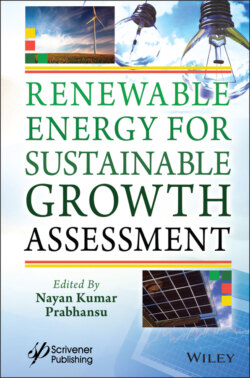Читать книгу Renewable Energy for Sustainable Growth Assessment - Группа авторов - Страница 73
3.3 Environmental Impacts and Control by Biomass Conversion
ОглавлениеEnvironmental impacts are of primary importance during biomass conversion [21]. In the current status, biomass could be efficiently converted by physical and chemical processes into solid, liquid, and gaseous fuels. Release of gases and aerosols on biomass combustion into the atmosphere influences the quality of regional climate, visibility, global ozone composition, biogeochemical cycles, and the earth’s radiative expenditure [22]. One of the best ways to prevent environmental pollution is effective biomass conversion into renewable power generation. The energy products like biogas produced from various biomass waste are viz., tannery waste [23]; fish industrial processing waste and fish crude oil waste [24]; cattle slaughterhouse waste [25], biodiesel production from wet sewage sludge with 85% water content [26] and bioethanol conversion from paddy straw and food waste [27]; Spirulina and molasses [28] are the practical solution for control of environmental impact.
